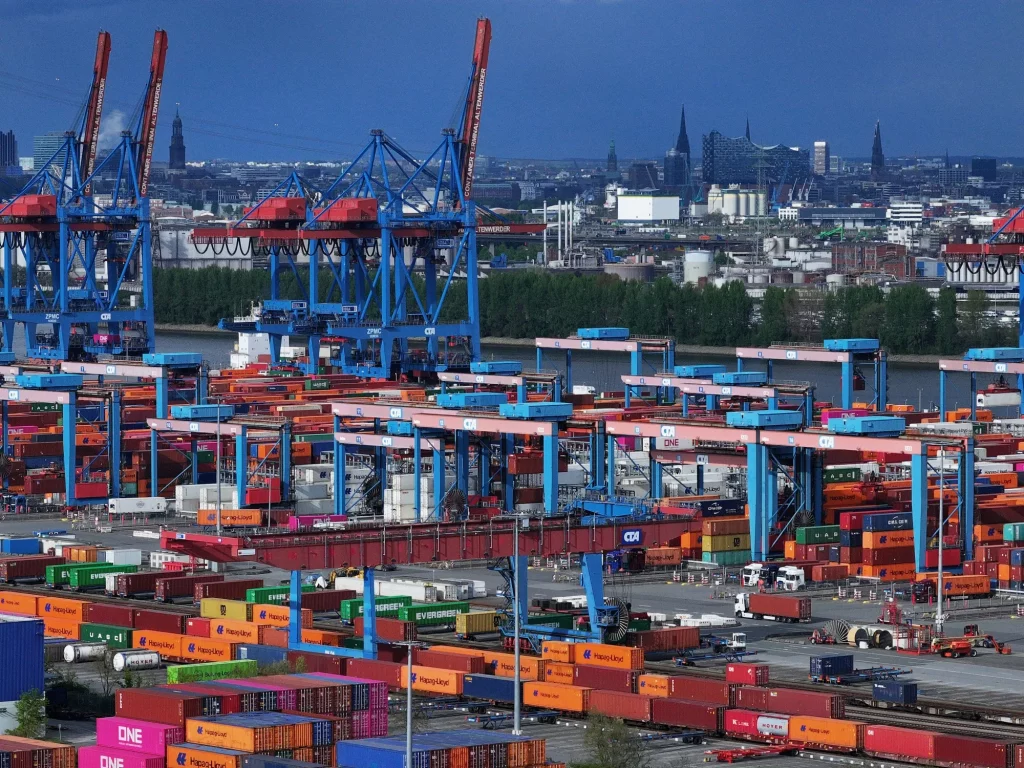For decades, the US dollar has stood as the undisputed king of global finance. As the world’s primary reserve currency, the dollar has shaped global trade, investment, and central bank reserves. However, in recent years, there has been growing discourse around the future of the dollar’s dominance in the global financial system. A perfect storm of factors—ranging from geopolitical tensions and economic uncertainty to the rise of digital currencies—has sparked doubts about whether the dollar will continue to hold its position as the world’s reserve currency.
As countries and financial institutions reassess their dependencies on the dollar, many are exploring potential alternatives. Could the euro, the Chinese yuan, or even digital currencies replace the dollar as the global reserve currency? And what would such a shift mean for the long-term economic dominance of the United States? This article delves into the factors contributing to the rising doubts about the dollar, the potential alternatives that are being considered, and the far-reaching implications for the global financial system.
Factors Contributing to Doubts About the Dollar’s Reserve Currency Role
Several factors have contributed to the growing skepticism about the dollar’s role as the global reserve currency. Historically, the dollar’s dominance was not just a result of its inherent stability but also because of the trust placed in the United States’ political and economic system. The US maintained a level of economic and military power that reinforced the strength of the dollar in global markets. However, this trust is beginning to erode as geopolitical tensions and shifting economic realities expose the vulnerabilities of an over-reliance on the dollar.
One of the primary concerns is the rising US fiscal deficit and national debt. As the US continues to run budget deficits and accumulate debt, concerns about the long-term value of the dollar have become more pronounced. In 2020, the US government’s response to the COVID-19 pandemic involved unprecedented levels of stimulus spending, which led to a dramatic increase in the national debt. While the dollar remains the dominant global currency, there are growing concerns about its long-term stability, particularly if the US continues to run high deficits and print money at such unprecedented levels.
Additionally, the US’s use of the dollar as a weapon in geopolitical conflicts—such as imposing sanctions on countries like Russia, Iran, and Venezuela—has raised alarm in many parts of the world. Countries that are targeted by US sanctions have grown increasingly wary of holding large dollar reserves, fearing that the US could seize or freeze their assets at will. This has prompted several nations to explore alternatives to reduce their dependence on the dollar and shield themselves from the risks of future sanctions.
Another factor contributing to the decline of confidence in the dollar is the increasing role of emerging economies in global trade. As countries like China, India, and Brazil continue to grow, they are becoming less reliant on the US as a trading partner. In particular, China’s efforts to internationalize the yuan, also known as the renminbi, have made inroads in global trade. The development of alternative financial infrastructure, such as China’s Belt and Road Initiative (BRI), is also reshaping global trade patterns in ways that could diminish the dollar’s role as the dominant currency.
Survey Insights from Financial Professionals
A recent survey of financial professionals, conducted by a leading global financial advisory firm, reveals that doubts about the dollar’s future are widespread. More than 60% of respondents indicated that they believe the dollar’s role as the world’s primary reserve currency could decline within the next two decades. These professionals cited a range of reasons for their concerns, including the increasing volatility of US economic policy, the rise of China as a global economic power, and the potential for digital currencies to disrupt traditional financial systems.
In particular, many financial experts point to the US’s monetary policy, especially the Federal Reserve’s approach to interest rates and money printing. Over the past decade, the Fed has engaged in policies like quantitative easing, which involves creating money to purchase government bonds and stimulate the economy. While these measures have been effective in the short term, some believe they are unsustainable in the long run and could lead to inflation, devaluation of the dollar, and a loss of confidence in the currency.
Moreover, the global community is increasingly questioning whether it is wise to keep so much wealth denominated in a currency tied to the policies of one nation. With many countries now considering the diversification of their reserves, the growing dissatisfaction with the dollar is becoming harder to ignore.
Potential Alternatives: Euro, Yuan, and Digital Currencies
As doubts about the dollar grow, several alternatives are emerging, each with its own set of challenges and potential for growth.
Euro
The euro has long been considered the most viable alternative to the dollar, and its use in global reserves has been growing steadily over the years. As the second-largest currency in the world, the euro is the dominant currency in Europe, and its backing by the European Central Bank (ECB) gives it a level of stability and credibility.
The eurozone’s economic bloc is home to over 340 million people and represents a significant portion of global trade. However, the euro has its own limitations, particularly in terms of political unity. The European Union (EU) faces several challenges, including the ongoing issues related to Brexit, economic disparities between member states, and the need for greater fiscal integration. Furthermore, the euro’s value is influenced by the policies of the ECB, which are subject to political pressures from EU member states.

For the euro to replace the dollar as the world’s reserve currency, it would need to overcome these internal challenges and gain wider acceptance among global central banks and investors.
Chinese Yuan (Renminbi)
The yuan, or renminbi, is increasingly being seen as a contender for the dollar’s throne. China’s massive economic growth, coupled with its push for greater influence in global finance, has made the yuan more attractive as a global reserve currency. The Chinese government has taken steps to internationalize the yuan, including the creation of offshore yuan markets and the establishment of the Asian Infrastructure Investment Bank (AIIB).
However, there are significant obstacles to the yuan’s widespread adoption. Unlike the euro, the yuan is not fully convertible, and China’s capital controls limit the flow of money in and out of the country. Additionally, China’s political system and its human rights record raise concerns about the currency’s stability and trustworthiness. For the yuan to replace the dollar, China would need to liberalize its financial markets and reduce its level of control over the economy.
Digital Currencies
The rise of digital currencies—particularly central bank digital currencies (CBDCs)—has added a new layer of complexity to the debate about the future of reserve currencies. Several countries, including China, have launched or are in the process of launching their own digital currencies, which are expected to be used in international trade. China’s digital yuan, for example, is already being tested in several pilot projects and could eventually be used to settle international transactions.
Digital currencies offer several advantages, such as faster and cheaper transactions, greater transparency, and the ability to bypass traditional financial institutions. However, digital currencies also raise significant concerns about privacy, cybersecurity, and the potential for government control over individuals’ financial transactions. Moreover, the lack of widespread infrastructure for digital currencies and the challenges associated with cross-border payments make it unlikely that digital currencies will replace the dollar in the near term.
Long-Term Implications for US Economic Dominance
The decline of the dollar’s dominance would have profound implications for the US economy. As the world’s reserve currency, the dollar has allowed the US to borrow at low costs and run large budget deficits without facing immediate consequences. If the dollar loses its status as the world’s primary reserve currency, the US could face higher borrowing costs and a reduction in its global influence.
Moreover, the US would no longer be able to rely on the dollar’s strength to impose sanctions or influence global trade. This shift could result in a loss of economic power and geopolitical leverage. However, such a transition would take time. The US still has significant advantages, including a deep and liquid financial market, a stable political system, and a dominant position in global technology and finance.
Conclusion
While the US dollar’s position as the world’s reserve currency remains secure for now, the growing shift toward diversification and the rise of potential alternatives present a new reality for the global financial system. As countries, financial professionals, and policymakers reconsider their dependence on the dollar, the future of global reserve currencies is uncertain. The euro, yuan, and digital currencies each offer potential alternatives, but each faces significant challenges that may limit their ability to dethrone the dollar in the near future. Ultimately, the long-term implications of this shift will depend on the actions taken by global powers, the development of new financial technologies, and the evolution of geopolitical dynamics in the years to come.






























